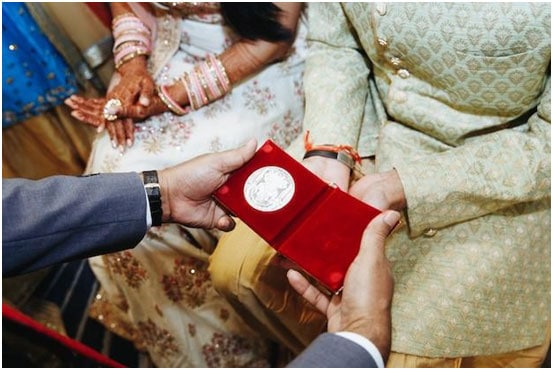Menu
Home » Dealing with Cultural Differences in Marriage
Dealing with Cultural Differences in Marriage
Have Questions? Call us Today at +1 209 690 7502

Dealing with cultural differences in marriage isn’t just about compromise; it’s about creating a unique blend of two worlds. With insights from Odyssey, a brand renowned for its expertise in marriage counselling, you’re in the right place for actionable insight on navigating this complex terrain. This article demystifies the process, offering tangible strategies to celebrate your diverse backgrounds while building a cohesive home life.
Table of Contents
Key Takeaways
- Embrace and celebrate cultural differences in your marriage by actively engaging in conversations about traditions and participating in each other’s cultural events to enrich the relationship.
- Foster open communication and seek external support, such as therapy or multicultural groups, to bridge cultural gaps and strengthen the marital bond.
- Create a unique, blended home environment by integrating each other’s traditions, forming new ones together, and teaching any children about the richness of both cultures.
Understanding Cultural Diversity in Your Union
Cultural diversity in marriage is like a vibrant mosaic, each piece reflecting a unique facet of the partners’ backgrounds and experiences. Whether it’s about:
- race
- ethnicity
- religion
- geographical upbringing
- lifestyle
These differences can add richness to a relationship. The key is recognising and embracing these differences, engaging in open conversations about traditions, and participating in one another’s family events.
Identifying Cultural Norms and Expectations
Our expectations for romantic relationships are shaped by cultural conditioning and family upbringing. Media representations of romance contribute to this, sometimes leading to unrealistic expectations. It’s easy to adopt societal norms without considering our personal desires or cultural background. Exploring the impact of cultural differences on romantic relationships can provide valuable insights into how these factors influence our perceptions and interactions in romantic contexts.
Open discussions about daily routines, love, religion, and chore distribution can help align relationship expectations, fostering a harmonious union.
Acknowledging Different Cultural Backgrounds
Understanding your partner’s perspective necessitates acknowledging and respecting their culture. It’s essential to put in effort and intention when building relationships with people from diverse cultural backgrounds.
A sturdy and caring relationship, based on trust, understanding, and shared goals, can be established when you’re open to changing expectations and finding compromises that respect both cultural traditions.
Bridging Cultural Gaps: Strategies for a Harmonious Relationship
Cultural gaps in a relationship can be bridged through curiosity and open communication, fostering a deeper understanding of each other’s culture, traditions, and values. By overcoming cultural boundaries, seeking external support and educational resources, such as books, workshops, and professional guidance, can enhance cultural understanding.
Navigating external pressures with patience and respect enables you to reinforce the marital bond.
Fostering Open Communication
Fostering open communication is pivotal in allowing partners to express their unique needs and desires. This involves actively listening to your partner to understand their perspective and expressing your thoughts, feelings, and concerns in an honest and direct manner.
Creating an environment where multiple cultural perspectives are valued involves examining your own biases and learning about your own culture, as well as the cultures of others. For a deeper exploration of this topic and practical tips for success in navigating cultural differences in relationships, consider reading the insightful article on HS Magazine. This resource offers valuable guidance and strategies to enhance understanding and connection in culturally diverse relationships.
Seeking Support from Family and Professionals
External support can play a significant role in managing cultural disparities. Professional guidance from therapists who specialise in multicultural relationships can offer valuable insights and strategies. Family support is also crucial as it can facilitate the integration of cultural differences and enhance marital satisfaction.
Joining multicultural groups or forums can provide a community of individuals with similar experiences to connect with.
Celebrating Two Cultures Under One Roof
Celebrating two cultures under one roof can be a delightful journey. By incorporating the following elements, you can create a unique and immersive atmosphere that celebrates both partners’ diverse backgrounds:
- Bilingual elements
- Religious ceremonies
- Traditional pastries
- Cultural dances
It’s about building a resilient partnership by celebrating diversity and creating rules and identities that blend cultures into a unique, shared home.
Integrating Traditions and Beliefs
Finding ways to integrate aspects of both cultures is crucial for celebrating each other’s traditions and practices in the household. This can be achieved through combined ceremonies, such as using a shared veil with Spanish origins in a Catholic wedding or blending a Hindu sangeet with Lutheran rituals.
Merging various cultural customs imbues celebrations with deep cultural significance.
Creating New Traditions Together
Creating new traditions is like painting a canvas with a unique blend of colours. Introducing a personalised element, such as a mini Sangeet complete with a Bollywood dance, at a Christian-Hindu wedding reception can weave together cultural heritages in a memorable way. You can even incorporate culinary traditions into your meals, creating a daily celebration of your diverse backgrounds.
Navigating Cross-Cultural Relationships with Empathy
Navigating cross-cultural relationships requires empathy and skill in navigating cultural differences. Understanding and appreciating each other’s cultural perspectives is the key to a successful cross-cultural relationship. Empathy bridges the emotional distance resulting from cultural misunderstandings, offering a fuller picture that fosters a deeper connection.
It’s about learning from one another and growing together, enriching the relationship.
Respecting Partner’s Culture
Respecting your partner’s culture is like acknowledging their identity and affirming that their heritage is valued within the relationship. Understanding your partner’s cultural heritage fosters appreciation for their unique perspectives and contributions. This respect leads to gaining new perspectives and knowledge beyond your own cultural experiences.
Standing against discrimination and educating oneself about other cultures shows a commitment to building genuine relationships within diverse backgrounds.
Understanding the Impact of Cultural Heritage
Cultural heritage significantly shapes a partner’s identity, influencing their beliefs, behaviours, and interactions with the world. Listening to each other’s life stories can be a powerful way to understand the nuances of your respective cultures.
Travelling to each other’s home countries or regions can help you understand their background and establish a deeper bond with their families and heritage.
Parenting Across Cultures: Raising Children in an Intercultural Home
Parenting in an intercultural home can be a rewarding yet challenging experience. Aligning parenting styles and teaching children about both cultures can sow the seeds of adaptability and a broader worldview in them.
Aligning Parenting Styles
Aligning parenting styles in an intercultural marriage requires an understanding of how each partner’s upbringing and cultural cognitions shape their parenting practices. Creating a harmonious family necessitates a willingness to adapt aspects of your identities and make compromises.
Teaching Children About Both Cultures
Teaching children about both cultures involves helping them become culturally competent members of society. Parents can create new family traditions by choosing specific aspects from each culture, such as language, religion, or practices for their children to learn.
Diversity activities and children’s books that celebrate diversity serve as practical tools for teaching about cultural differences. An excellent resource that provides strategies for teaching children and students respect for different cultures, along with activities that incorporate multicultural education, can be found here. This approach not only enriches the child’s understanding and appreciation of their heritage but also fosters a broader respect and empathy for other cultures, laying the groundwork for a more inclusive and diverse society.
Common Challenges and Solutions in Cross-Cultural Marriages
Cross-cultural marriages can face unique challenges after the honeymoon stage, as deeper aspects of their cultural backgrounds come into play. Overcoming potential challenges requires recognising and consciously navigating these cultural differences.
However, these challenges can also foster greater resilience and commitment to the relationship.
Overcoming Language Barriers and Communication Breakdowns
Language barriers can be a hurdle in cross-cultural marriages. Learning each other’s language and using dictionary apps can strengthen the couple’s connection and bridge communication gaps.
Engaging with relationship counsellors specialised in cross-cultural settings helps to ensure effective communication.
Dealing with External Pressures and Social Expectations
External judgment and disapproval from respective communities can add pressure on cross-cultural marriages. However, focusing on shared goals and interests can help overcome societal norms and familial obligations that impose pressures on the relationship.
Finding Common Ground Amidst Cultural Disparities
Finding common ground amidst cultural disparities is like building a bridge that connects two distinct lands. Focusing on shared goals and interests helps couples overcome cultural disparities and strengthen their bond.
Aligning Life Goals and Values
In a cross-cultural marriage, identifying common values fortifies the bond, as partners often share key values, ideals, and life goals despite cultural differences. Creating a harmonious marriage in intercultural couples necessitates a willingness to adapt aspects of their identities and make compromises. For those looking to strengthen and improve their relationship, considering marriage goals can be a helpful step in aligning life goals and values in a meaningful way.
Embracing Each Other’s Perspectives
Embracing cultural differences is a journey of mutual understanding and acceptance. Establishing friendships with people from diverse cultures and openly admitting mistakes can foster trust and transparency.
Couples can connect across cultures and work towards aligning their life goals and values by immersing themselves in social situations with diverse groups, even if they don’t share the same culture.
Conclusion
Navigating a cross-cultural marriage is like learning a new dance. It can be challenging yet rewarding, filled with unexpected turns, but ultimately leading to a deeper connection. By embracing cultural diversity, fostering open communication, celebrating both cultures, and respecting each other’s perspectives, couples can build a harmonious relationship that transcends cultural boundaries. If you’re navigating this unique journey and need guidance, please don’t hesitate to contact us for support and advice.
Frequently Asked Questions
To overcome cultural differences in marriage, it’s important to educate yourself and your family about the other culture, challenge false beliefs, and have open discussions about the positives and negatives of both cultures to find what best fits in your relationship. Embracing open communication, cultural learning, mutual respect, and seeking support when needed are key in building strong and thriving relationships that celebrate unique cultural backgrounds.
Yes, cultural differences can impact an individual’s views and expectations about marriage and family, especially when it comes to gender roles and responsibilities.
In a relationship, it’s important to show respect for each other’s culture and beliefs, and communicate openly and honestly. Understanding, respecting, and compromising on cultural differences can create a balanced and positive environment for both partners.
To strengthen your marriage when it’s on the rocks, try changing your mindset, showing love, and making your partner your best friend. Making time for each other and learning to forgive are also important steps to take.
Bradley Prouting
Brad Prouting started helping Men with their relationships and Marriage troubles for over 4 years now. After realizing the Men in the most pain were those facing divorce, Brad and his team decided to solely focus on helping Men save their marriage.
Recent Posts
Overcoming Relationship Challenges
June 25, 2024
Conflict Resolution
May 31, 2024
Rebuilding After Infidelity
May 31, 2024
Tips for Healthy Technology Use in Relationships
May 31, 2024
Long-Distance Relationship Guidance
May 21, 2024
Recent Categories
Archives Post
Related Posts

Choosing a Marital Expert
Choosing a relationship expert who can guide you through personal issues, couple conflicts, or even the
Bradley Prouting
June 26, 2024

Overcoming Relationship Challenges
Overcoming relationship challenges requires resilience, empathy, and a willingness to grow together. In every relationship, whether
Bradley Prouting
June 25, 2024

Conflict Resolution
At Odyssey, we recognise that conflict is a natural part of any relationship, be it personal
Bradley Prouting
May 31, 2024



